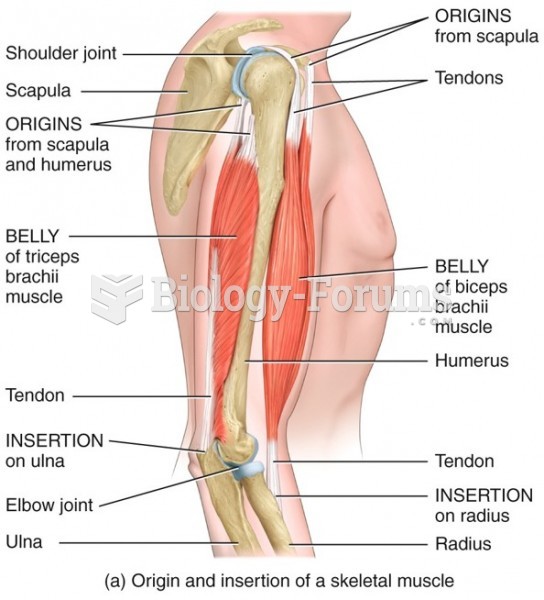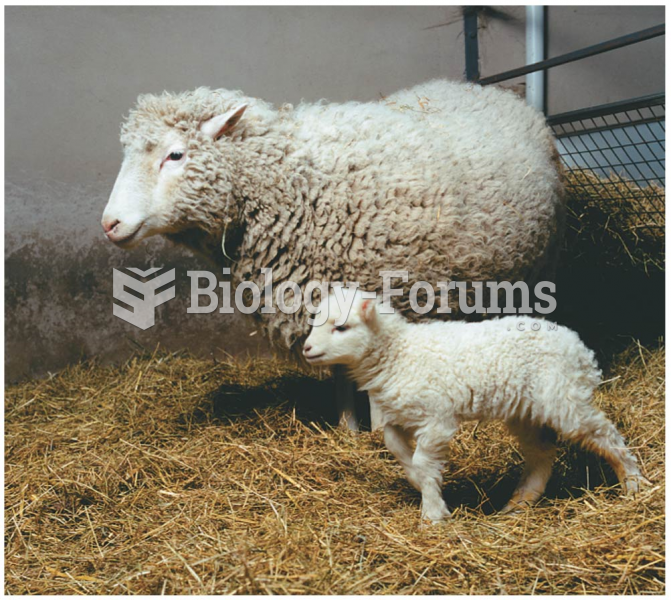|
|
|
Multiple sclerosis is a condition wherein the body's nervous system is weakened by an autoimmune reaction that attacks the myelin sheaths of neurons.
Pink eye is a term that refers to conjunctivitis, which is inflammation of the thin, clear membrane (conjunctiva) over the white part of the eye (sclera). It may be triggered by a virus, bacteria, or foreign body in the eye. Antibiotic eye drops alleviate bacterial conjunctivitis, and antihistamine allergy pills or eye drops help control allergic conjunctivitis symptoms.
The average adult has about 21 square feet of skin.
The Romans did not use numerals to indicate fractions but instead used words to indicate parts of a whole.
More than nineteen million Americans carry the factor V gene that causes blood clots, pulmonary embolism, and heart disease.







